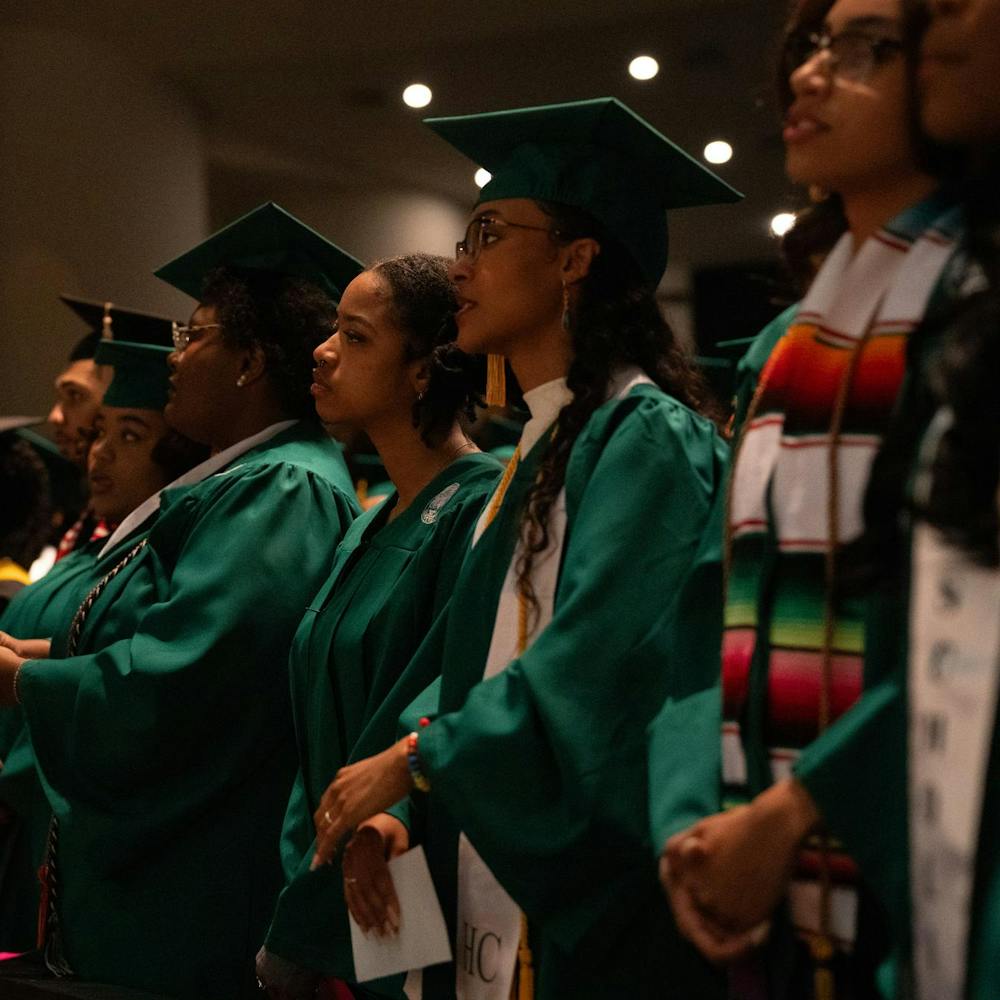Sherman Garnett’s office on the third floor of Case Hall has been riddled with phone calls from reporters, family and co-workers since Tuesday’s attacks in New York and Washington.
The offices the James Madison College dean worked in for more than 10 years at the Pentagon are gone, broken into piles of ash and rubble.
Although his closest friends are accounted for, he’s still waiting to hear about others he spent his days at the Pentagon with.
Garnett worked in arms control operations, focusing on chemical and biological weapons control and NATO treaty design.
“I have a picture in my office of my staff and myself,” he said. “We’re sitting on my steps that the plane went right through. I’m very anxious about who is on that list.”
Garnett said security at the building increased each year from when he started in 1983 until he left in 1994, but it still came as no surprise that there was a terrorist attack.
“There was a real sense that under certain times this was a target,” he said. “Almost every year, they did something to make it less vulnerable to terrorists. Terrorism was more real to us, but I don’t think it’s something that people thought would happen.”
Tuesday’s attacks, Garnett said, are probably the most prominent event most MSU students have seen in their lives - comparable to the assassination of President John F. Kennedy in 1963 and the Vietnam War he has seen in his life.
“I don’t really want my children to have mass tragedy after mass tragedy,” he said. “A lot of this stuff seems unreal to people. I do think that it ought to change us in the sense that we ought to realize that the world is smaller. I think we need to think seriously about our engagement with the outside world.”
Professors in the James Madison College and other MSU colleges were encouraged to discuss Tuesday’s events in class.
MSU was one of the few state universities that did not cancel classes.
Hannah Reed, an international relations and secondary education sophomore, said everyone showed up at her class Tuesday afternoon ready to discuss and theorize about the attacks.
“We wanted to hear what everybody else had to say,” she said. “Part of me and everyone else wanted to be in front of the TV with their friends, but it was good that we could all keep going with our normal lives and feel some degree of normalcy.
“I did feel a sense of camaraderie. We were all going through it.”
Camaraderie and togetherness were exactly the principles Garnett was hoping students would embody after estimated losses of more than 10,000 lives hundreds of miles away.
“It wasn’t a demand,” he said. “It was just a requirement of the time. I think you always should take care to make sure that you get an academic and thoughtful audience response to an event.
“I don’t pretend that we explained anything, and it’s too early for that. This kind of attack, you can only call it diabolically spectacular.”
Although he was seven years away from the aim of the hijacked plane, Garnett said his mother and children, who have all been in the now-crumbled office, are thankful they moved from the area.
“This is part of what that world is,” he said. “Some of it is ugly. You’ve got to be serious about talking, especially if you’re a university.
“You have to be able to respond to that world in a strong way.”






